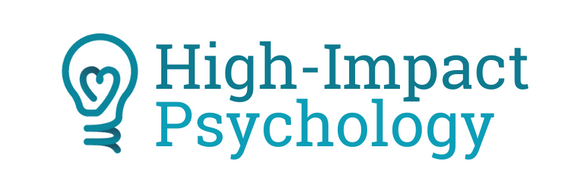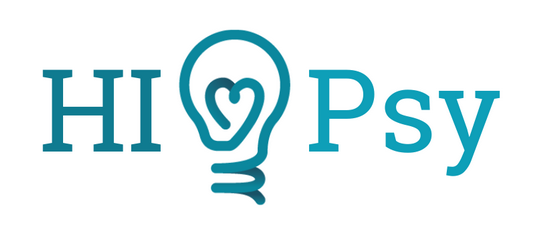Engaged with psychology or mental health? This is for you.
Impartial compassion. Rationality. Wellbeing. For a movement built on these values, EA likely underutilizes psychology professionals. Together with our supporters from the Global Priorities Institute, the Center for Effective Altruism, and the Happier Lives Institute, HIPsy aims to help people engaged with psychology or mental health maximize their impact.
Vision
We will follow in the footsteps of the EA Consulting Network, High-Impact Medicine, and High-Impact Athletes. Accordingly, the goal of HIPsy shall be to increase the likelihood of high-impact decisions, make collaboration and information processes more effective, and reduce the risk of value drift for people engaged in psychology or mental health.
Relevant resources shall be available, easy to access, and use:
- up-to-date high-quality information,
- career and work advice,
- networking, and collaboration opportunities.
Psychological know-how shall be effectively acquired, shared, and used for EA. Psychology expertise is particularly needed in the fields of:
- mental health and well-being, both within EA and globally,
- community building, and outreach,
- management, HR, and operations,
- priorities research, applied research, effectiveness research,
- x-risk-reduction and AI safety, e.g. awareness-building, and persuasion.
Summary: The goal for the next few months is to find out which of the many potential actions to prioritize, and how to address them most effectively. We will check what materials, events, and services are in-demand, and pilot some of them.

Join us and pre-sign-up
Here you can let us know which resources would be most valuable to you. We aim to provide the most wanted and most promising ones—very likely for free. Feel free to forward this to anyone who might be interested in benefitting from this:
- 5 min - for you if you have a background in psychology
- 5 min - for you if you are interested in, working in, or adjacent to the mental health sector
- 3 min - for everyone interested in increasing their impact using evidence-based psychology
You want to help more?
Let us know here. If you'd like to collaborate, fund us, or if you have got any of the following skills, we want to hear from you: online content creation, running mentorship programs, hosting events, web-dev, design, community-building, operations, running surveys, research, and cost-effectiveness analyses. Let us know if you have any other ideas.
Opportunities
Engaging with > 50 members of the EA community and their materials revealed three major opportunities:
1. EA has skill bottlenecks that psychological professionals can help with
- Industry: management, entrepreneurship, operations, HR
- Science: at universities and EA mental health/wellbeing orgs (lack of seniors)
- Therapy: EA-informed psychotherapists and coaches for members of the EA community
2. It’s hard for psychology professionals to enter EA even if they are likely good matches
- Existing materials and advice are difficult to find, scattered, contradictory, out of date, and selective (e.g. reading list, Effective Thesis) which likely discourages prospects
- Effectiveness and altruism: People largely enter psychology because they want to help others, and most universities have very high entrance requirements and thus select intelligent and ambitious individuals
- Mental health as a cause area faces large funding constraints that make it hard to enter, contribute and stick for people engaged in this field.
3. There is unfulfilled potential for synergistic action and systematic exchange
The impact of psychology-related EA orgs could be boosted by
- informing members of the community of techniques, knowledge, and best practices they can use to be more impactful, e.g. status quo of psychology research
- fostering collaboration and joint efforts between organizations that face similar challenges, e.g. mental health orgs that need to learn how to develop scalable and sustainable psychological interventions
- cooperating with leading psychology experts and EA-aligned individuals outside of EA that can help EA stay up to date with current industry, market, and research standards.
Conclusion. It can be easier to access up-to-date high-quality information, advice, and networking opportunities. We imagine doing so would foster effective action, i.e. knowledge transfer, exchange, and collaboration, enabling high-speed and high-impact work in psychology-related areas.
Plan
Expected outcomes by mid-November (pilot phase):
- We’ve assessed how promising potential actions are to close the gaps and have prioritized based on expected effort, impact, and our comparative advantage vis-à-vis existing initiatives.
- We’ve gathered sufficient data from surveys and pilot activities on whether to move on with HIPsy.
- If yes, we have made a concrete plan on how and with whom to move forward cost-effectively.
These are the potential areas of activity:
- Networking and events
Build engaging, accessible peer networks to foster productive exchange and relationships between psychology professionals and psychology-related orgs within EA. For example:- EAG contributions, retreats, and one-on-one meetings
- online meet-ups, workshops, and discussion events
- mentoring, feedback, and career advice arrangements
- online groups, e.g. contributions to existing ones such as Slack: "EA Mental Health", "EA Psychology Research"; Facebook: "Psychology for EA", "EA, Mental Health, and Happiness”
- Information materials
Create, update, and distribute comprehensive high-quality resources, and create a system for organizing, requesting, and sharing resources of various kinds.
For example:- Overview:
a website where the target groups can find all resources organized and linked, as well as structured, e.g. high-impact opportunities in psychology-related fields as well as everything listed below - Tailored materials:
on how to get funded or hired, or how to found an org in psychology-related cause areas - Summaries:
of the most important studies, data, interventions, problems, bottlenecks, opportunities, and best practices, e.g.:- lists of high-impact career and volunteering opportunities,
- directory of psychologists in EA,
- list with mental health orgs and projects relevant to EA,
- list of ideas related to psychology for AIS
- manual on how to measure impact,
- manual on how to do in-group outreach to psychology students or psychotherapists in training
- Overview:
We will check what materials, events, and services missing, requested, and potentially impactful.
Our prioritization will be informed by::
- surveys within the EA community
Number of people who request certain materials and sign up for different events and services - engagement in pilot activities
Number and ratings of “users”, e.g. for sessions at EAGs, the website, and the new mental health cause area report - qualitative assessment
Expected impact and available resources for execution of certain activities, judged with the help of cognitive walkthroughs and expert interviews
Future potential measures of impact for the prioritized activities:
- Main goals
- No. of people reached who expressed interest or are highly engaged
- No. of people/orgs that made higher-impact decisions based on activities/resources
- Instrumental goals
- Events: no. of participants, evaluation as done at the end of EAGs
- Material: no. of shares/uses/contributions to creation/updates, ratings of helpfulness
- Groups: no. of people joining/writing/reacting, surveys for leaders/members about significant actions taken (initiatives run, switches to EA-aligned jobs, engagement changes)

Team
Lead:
Dr. Inga Grossmann was appointed as the youngest professor to date at the HMKW in Berlin, a university of applied science. Having worked in academia and business for 10 years, she has broad and up-to-date knowledge of research, the industry, and the practice related to all sorts of psychological interventions. She managed a variety of research and development projects, small teams in companies and larger groups of students, and built networks of experts for companies. Currently, Inga assists and consults existing EA mental health and meta projects, e.g. Overcome, the Mental Health Navigator, The Berlin Hub, the Wellbeing Program.
Supporters:
- Lucius Caviola (Havard/GPI): is in the lead for EA Psychology Research, with the EA Psychology Lab
- Dvir Caspi / Jon Massmann (Psychology for EA): collaborating to create the HIPsy Website
- Lesley Schimanski: helps with different parts of the project
- Akhil Bansal (CE), Erik Jentzen (Hi-Med): collaborating on a new mental health cause area report and on events for health care professionals
- Devon Fritz (HIP): will assist with marketing and provide strategic support
- Manuel Allgaier (EA Germany), Anneke Pogarell (CEA), Nadia Montazeri (EA Switzerland), Jona Glade (CEA/EACN): advising on community building
- Michael Plant (Happier Lives Institute), Peter Brietbart (Mindease), Julia Wise (CEA), Emily Jennings (Mental Health Navigator), Sreevidhya Sk (Overcome), John Salter (Overcome): advising on and helping with mental health as a cause area
You can help HIPsy to achieve its impact!
- We'd appreciate it a lot if you pre-signed up and joined us by filling out the forms linked in the "Vision" section. You can also forward them to people who might be interested in benefiting from this project.
- Let us know here if here you want to collaborate, fund us, or if you want to contribute with any of the following skills: online content creation, running mentorship programs, hosting events, web-dev, community-building, running surveys, research, and cost-effectiveness analyses.
Who helped with this post?
Thank you to Devon Fritz, Jona Glade, John Salter, Dvir Caspi, Dawn Denis Drescher and Elias Mannherz.

Inga - this sounds exciting and useful, and I'm happy to help with it however I can.
I'm a psychology professor at U. New Mexico (USA) who's taught classes on 'The psychology of Effective Altruism', human emotions, human sexuality, intelligence, evolutionary psychology, etc., and I've written 5 books and lots of papers on diverse psych topics, the most relevant of which might be the ones on mental disorders (schizophrenia, depression, autism), psych research methods, individual differences (intelligence, personality traits, behavior genetics), consumer psychology, and moral psychology (eg evolutionary origins of altruism and virtue-signaling). I also did a bunch of machine learning research (neural networks, genetic algorithms, autonomous agents) back in the 90s, and I've been catching up on AI alignment research.
Here's my google scholar page: https://scholar.google.com/citations?user=vEqE_rUAAAAJ&hl=en&oi=ao
And my web site: https://www.primalpoly.com/
That sounds great, Geoffrey! I will reach out to you.
Thanks for your work everyone! I am excited to see this develop!
I've proposed a number of things to be tested, and would love to get feedback.
- Can we adapt Carl Rogers to real life? Inspire people to see ourselves in others (empathy), see the best in others (positive regard), and bring out the best in others.
- Can we use our complex buying behaviors to foster empathy and positive regard? We buy different things, but we often have similar coveting, budgeting, browsing, shopping, and hoarding experiences. Can knowledge and sophistication in buying widgets help people build empathy and positive regard for people who buy doodads?
- Can exposing people to different kinds of biases help them better understand different kinds of discrimination?
- Safe driving allows us to foster altruistic and cooperative behavior on a global scale. Can we expand it to general society? Teach everyone to listen (instead of yield), check their biases (instead of the blind spots), reject Ideological Rage (instead of road rage).
More details here:
https://forum.effectivealtruism.org/posts/7srarHqktkHTBDYLq/bringing-out-the-best-in-humanity
Hi Inga,
I have a degree in clinical psychology, am a therapist and have conducted research on human wellbeing. Very interested in getting involved! I keep meeting people who say that we should meet! Looking forward to getting involved and seeing where this goes!